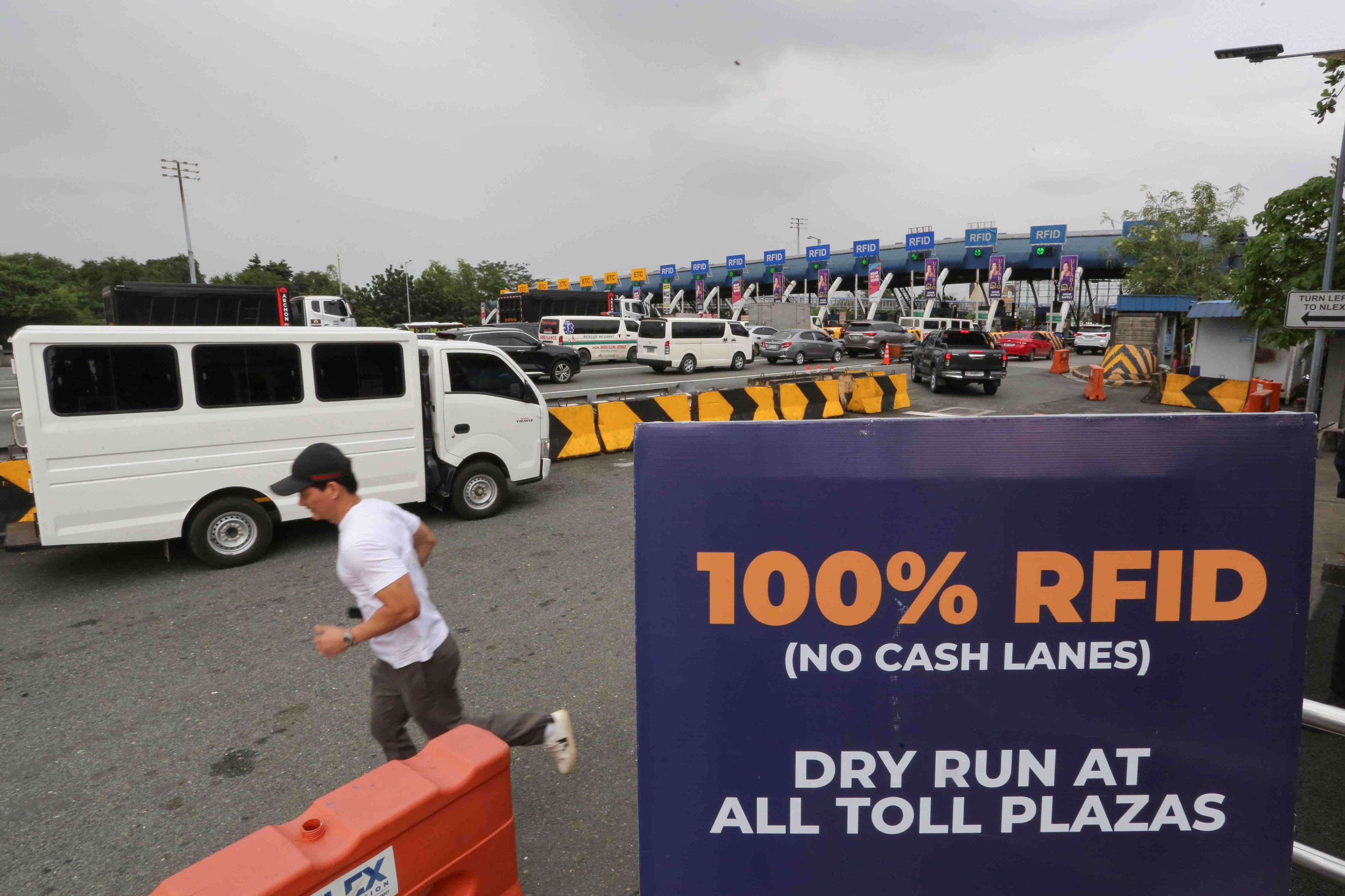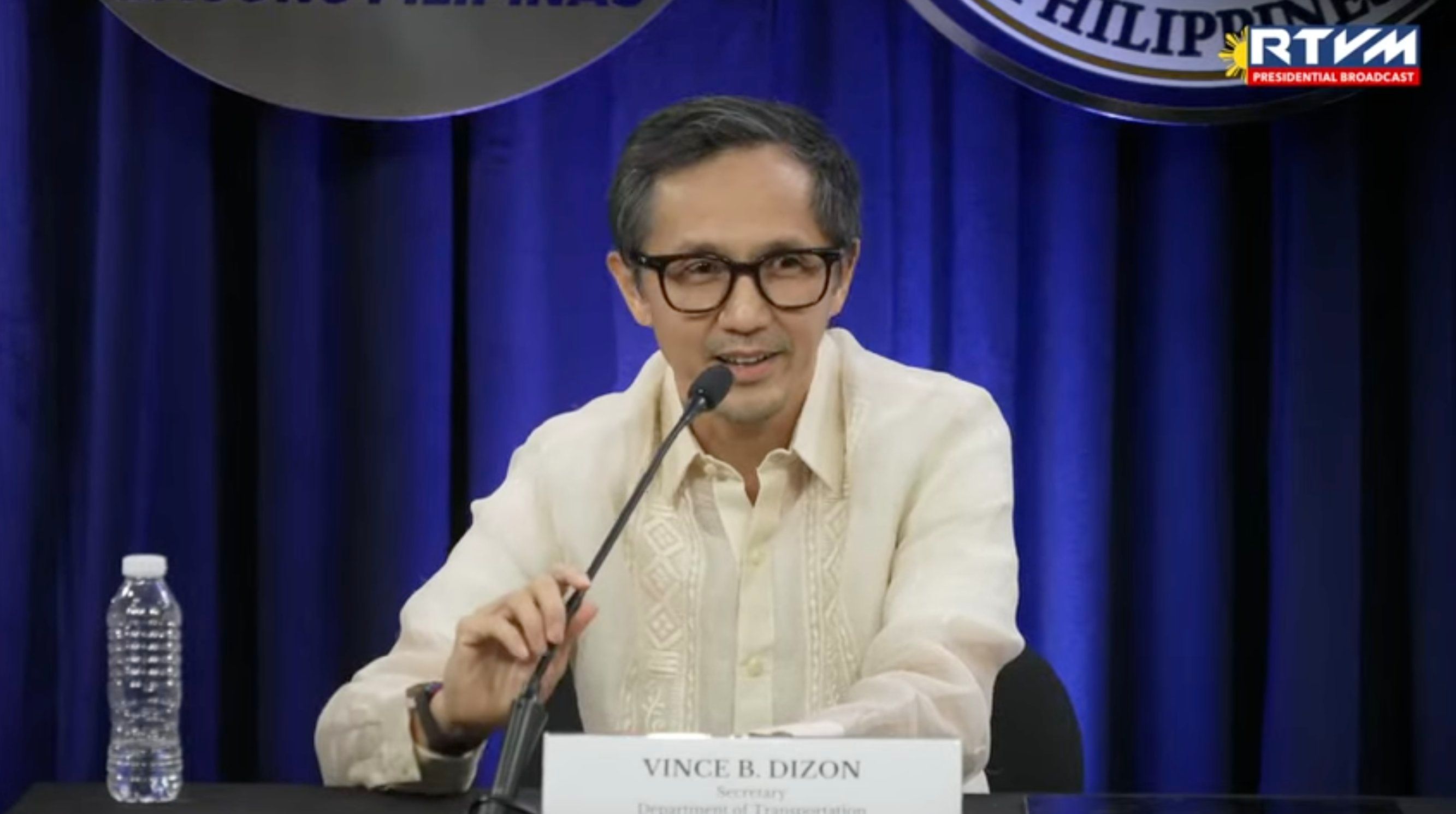'Anti-poor': Dizon orders suspension of cashless toll collection
At A Glance
- Dizon stressed the need to first evaluate the current system with toll operators before proceeding with a cashless setup.
- Dizon argued that implementing a fully cashless toll collection system would be unfair to lower-income motorists.
- Dizon said a shift to a cashless system might be reconsidered in the future once the system is perfected.
Newly installed Department of Transportation (DOTr) Secretary Vince Dizon said he has ordered the Toll Regulatory Board (TRB) to suspend the implementation of cashless toll collection on major expressways, citing previous issues and concerns about its impact on lower-income motorists.

Dizon said this ahead of the shift to a fully cashless system on March 15.
In a press briefing in Malacañan on Friday, Feb. 21, Dizon cited the issues encountered when the cashless system was first introduced to the country's expressways, particularly in the North and South Luzon expressways (NLEX and SLEX).
"This was tried already in the past, and we probably all remember what happened in Balintawak and in other choke points on NLEX and SLEX. Nagkabuhol-buhol 'yan kasi— I guess, for whatever reason, hindi na-disseminate ang information, etc. (Traffic was heavily congested because— I guess, for whatever reason, information was not properly disseminated, etc.)," he said.
Dizon said he had already informed toll operators that the plan to go fully cashless on March 15 would not push through.
"We are not going cashless on March 15, and we are not going cashless for the foreseeable future," he said.
Fix it first
Dizon stressed the need to first evaluate the current system with toll operators Metro Pacific Tollways Corporation (MPTC) and San Miguel Corporation (SMC) before proceeding with a cashless setup.
"Is there a way to make it more efficient? Okay ba? Lahat ba ng barrier gumagana? Lahat ba ng RFID nababasa (Is everything working fine? Are all barriers functioning? Are all RFID stickers being read correctly)?" he asked.
Dizon thought that if these issues were not yet fully resolved, it might not be the right time to enforce a cashless system.
"Baka hindi pa panahon para bigla-biglaan tayong mag-cashless (Maybe it's not yet time to suddenly go cashless)," he said.
'Anti-poor'
Dizon raised another concern, arguing that implementing a fully cashless toll collection system would be unfair to lower-income motorists.
"Para sa akin (In my opinion)... having a cashless system is not pro-poor. It is anti-poor," he said.
"Kayo siguro dito, kaya niyo mag-load sa Easytrip tsaka sa Autosweep ng P2,000, P3,000, P5,000. Pero paano yung mga kababayan natin na sagad-sagad ang budget (Some of us here can load up to P5,000 into Easytrip and Autosweep. But what about our fellow citizens who are struggling with their budget)?" he asked.
He pointed out the difficulties that motorists with insufficient or zero balance in their RFID accounts would face under a cashless setup.
"Paano kung sa pagod nila nakalimutan nilang mag-load, negative yung balance nila? O zero? Ibig sabihin 'pag cashless anong gagawin niya (What if, due to exhaustion, they forget to reload? What if they have a negative or zero balance? What will they do if there are no cash lanes)?" he said.
"Kalbaryo na naman yun. Pagpapahirap na naman sa tao yun (That would be another hardship. That would be another burden on the people)," he added.
It was earlier reported that vehicles with insufficient funds will be penalized P1,000 for the first offense, P2,000 for the second offense, and P5,000 for each subsequent offense.
Balance
Dizon stressed the importance of balancing regulation with public convenience, saying policies should improve people's lives instead of making it more difficult.

"Dapat gumiginhawa ang buhay ng tao, hindi pinapahirapan, 'di ba? (People's lives should become easier, not harder, right)?" he added.
He firmly stated his opposition to a fully cashless system at this time, saying it would only add to the burden of motorists.
"Itong cashless na 'to tingin ko pagpapahirap ito kaya hindi ako naniniwala diyan (This cashless system, in my opinion, only creates more hardship. That is why I do not believe in it)," he said.
Dizon added that a shift to a cashless system might be reconsidered in the future once the system is perfected.
"Siguro pagdating ng panahon, na-perfect na yung system and... pero right now I don't believe in it (Maybe in the future when the system is perfected... but right now, I don't believe in it)," he said.